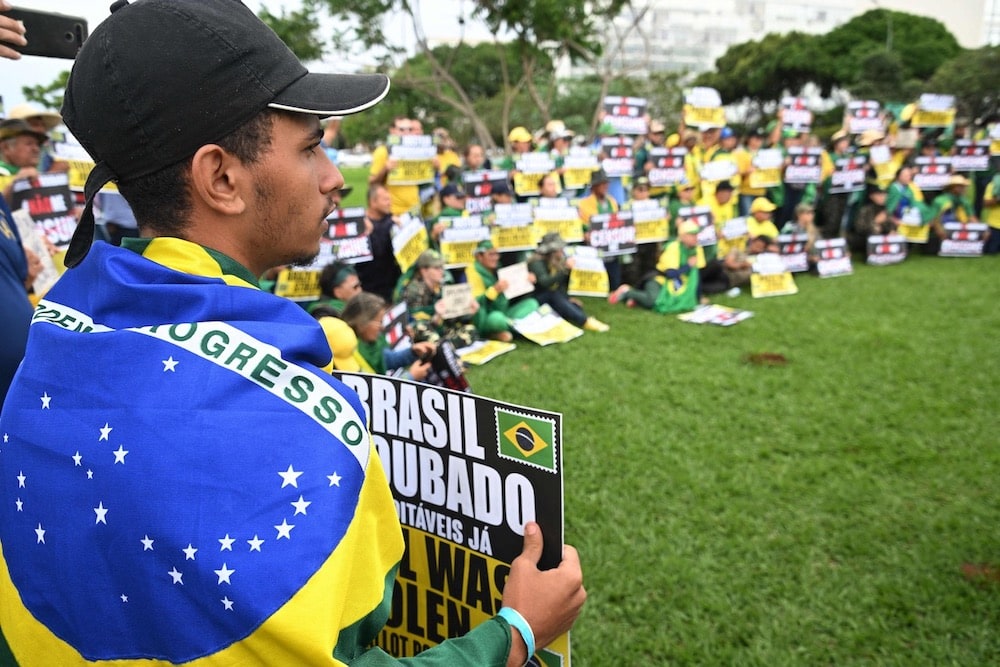A report published by Reporters Without Borders (RSF) shows to what point online violence against the media became widespread when Jair Bolsonaro was president and, in particular, during last October’s elections.
This statement was originally published on rsf.org on 28 April 2023.
A report published by Reporters Without Borders (RSF) shows to what point online violence against the media became widespread when Jair Bolsonaro was president and, in particular, during last October’s elections. As Brazil’s parliamentarians discuss a bill that would regulate social media platforms, RSF urges them to prioritise combatting online harassment of journalists.
Read the entire report in French or Portuguese
Entitled ‘Journalism facing hate networks in Brazil: online attacks against the media during the 2022 elections’, the report examines the extent of social media attacks on Brazil’s media during the election campaign that ended with Lula da Silva’s election as president on 30 October 2022.
The report reveals that more than 3.3 million offensive and intimidating messages against journalists and the media were registered in the space of just three months in the latter part of 2022, or one every three seconds. Some of these messages reached millions of users.
In partnership with the Laboratory for Image and Cyberculture Studies (LABIC), a leading research centre specialising in social media analysis that is attached to the Federal State University of Espirito Santo (UFES), RSF monitored 121 journalists and commentators, and the social media profiles of government officials and election candidates from 16 August to 15 November 2022. In all, more than 24 million Twitter posts were analysed.
“This huge endeavour aimed to quantify online violence and better understand the dynamics that have turned social media into a domain conducive to attacks on the media with the clear objective of intimidating and silencing journalists, and to the spread of disinformation designed to create a general climate of hostility and mistrust towards the media. In a country where public debate is very polarised, this phenomenon – which has not gone away – has dangerously transformed journalists into targets to be destroyed. There is an urgent need to reverse this trend.”
Artur Romeu, Director of RSF’s Latin America bureau
Three key facts
- The social media accounts that targeted journalists most during the election campaign had three things in common: support for then President Bolsonaro, criticism of Lula da Silva and attacks on the media.
- 53% of all the offensive messages targeted women journalists. Of the 10 journalists who were harassed most, who were the targets of the biggest number of offensive content items, seven were women.
- Some journalists who support Bolsonaro played the role of influencers vis-à-vis other journalists. Their accounts served, and continue to serve, as platforms for amplifying attacks on those who support the now President Lula
RSF’s report makes a series of recommendations. In particular, it recommends reinforcing government policies and legislation designed to combat the online harassment of journalists, paying special attention to violence against women journalists.
The new National Observatory of Violence against Journalists, a ministry of justice and public security initiative of which RSF is a member, should also pay close attention to what has become a mechanism for censoring content and inciting hatred and violence.
And Brazil’s congress should take online violence against journalists into account during its ongoing discussions of the bill to regulate social media platforms.



